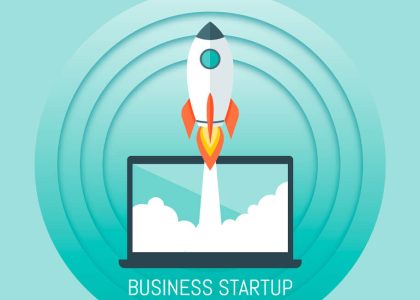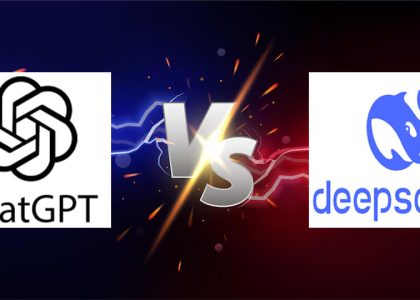Today we will learn what is digital marketing?. In today’s fast-paced, tech-driven world, businesses must adapt and innovate to stay competitive. One of the most transformative changes in the way companies reach their audiences is through digital marketing. Digital marketing has revolutionized how businesses promote their products and services, offering an array of strategies and tools that allow them to engage with consumers in more dynamic and measurable ways. However, what is digital marketing exactly, and why has it grown in importance? This blog will explore the concept of digital marketing, its various components, and its significance in the modern business landscape.
Today we will learn about what is digital marketing?. Let’s go.
Understanding What is digital marketing?
At its core, digital marketing refers to the use of digital channels, platforms, and technologies to promote and advertise products or services. Unlike traditional marketing, which typically involves print media, television, or radio, digital marketing leverages the internet and electronic devices to reach audiences where they spend most of their time—online.
Digital marketing encompasses a wide range of strategies, tools, and tactics that aim to connect brands with consumers through websites, social media, email, search engines, and other digital platforms. The goal is to create an online presence that drives traffic, generates leads, builds relationships, and ultimately boosts sales and brand recognition.
Key Components of What is digital marketing?
Digital marketing is a broad and diverse field, incorporating several key components and techniques. These include:
1. Search Engine Optimization (SEO)
SEO is the process of optimizing a website or online content so that it ranks higher on search engine results pages (SERPs). The higher a website ranks on search engines like Google, the more likely users are to click on it, leading to increased traffic and visibility. SEO involves a variety of strategies, including keyword research, on-page optimization (such as meta tags and headings), link building, and technical SEO (improving site speed, mobile responsiveness, etc.).
2. Content Marketing
Content marketing is the creation and sharing of valuable, relevant, and consistent content to attract and engage a target audience. Blog entries, articles, podcasts, videos, infographics, and more may fall under this category. Content marketing is an essential element of digital marketing because it helps establish authority, build brand trust, and provide value to consumers. Well-crafted content can encourage social sharing, drive organic traffic, and nurture leads throughout their customer journey.
3. Social Media Marketing
Social media marketing involves the use of platforms like Facebook, Instagram, Twitter, LinkedIn, and TikTok to promote products and services. Social media allows businesses to engage directly with their audience, build relationships, and foster brand loyalty. It also provides a platform for businesses to share updates, news, and promotions. Social media marketing includes organic methods (posts and interactions) as well as paid advertising (sponsored posts, ads, etc.).
4. Pay-Per-Click (PPC) Advertising
PPC is a form of digital advertising where businesses pay each time their ad is clicked. The most popular platform for PPC advertising is Google Ads, but businesses can also use social media platforms like Facebook and LinkedIn for PPC campaigns. PPC campaigns allow businesses to target specific demographics, interests, and behaviors to maximize the effectiveness of their ads. The key to successful PPC marketing is optimizing ads to generate a high return on investment (ROI).
5. Email Marketing
Email marketing involves sending targeted emails to potential and existing customers to nurture relationships, promote products, and encourage sales. Email marketing can include newsletters, promotional offers, product updates, and more. It’s a cost-effective way to communicate directly with your audience and deliver personalized content. Successful email marketing relies on building a well-segmented email list and crafting compelling subject lines and content.
6. Affiliate Marketing
Businesses collaborate with affiliates (people or businesses) to market their goods and services through affiliate marketing, a performance-based marketing approach. Affiliates earn a commission based on the sales or leads they generate through their marketing efforts. This can include blog posts, reviews, social media promotion, and more. Affiliate marketing allows businesses to expand their reach without having to directly manage all marketing efforts.
7. Influencer Marketing
Influencer marketing is a strategy where brands collaborate with influencers—individuals who have a significant following on social media or other online platforms—to promote their products or services. Influencers can create content that showcases the brand and reaches their engaged audience, providing an opportunity for businesses to tap into new, niche markets. This form of marketing is especially effective in industries like fashion, beauty, health, and lifestyle.
8. Online Public Relations (PR)
Digital PR focuses on maintaining a positive online reputation and managing a brand’s image. This can involve reaching out to bloggers, journalists, and influencers to get media coverage, handling customer reviews and complaints, and building relationships with online communities. Digital PR is important for maintaining credibility and trust with your audience.

Just, what is digital marketing?. It is not enough to know this. We also need to know…
Why is digital marketing important?
1. Wider Reach
The primary advantage of digital marketing is its ability to reach a global audience. Traditional marketing methods like print ads or TV commercials are often limited to a specific geographic area. In contrast, digital marketing allows businesses to target and reach consumers across the world 24/7, providing a much larger potential customer base.
2. Cost-Effectiveness
Compared to traditional marketing, digital marketing is relatively cost-effective. Small businesses with limited budgets can leverage affordable digital marketing strategies such as SEO, content marketing, and social media to build brand awareness and drive traffic. Even paid advertising, such as PPC, allows businesses to set their own budgets and track ROI in real-time.
3. Measurability and Analytics
One of the standout benefits of digital marketing is the ability to track, measure, and analyze performance in real-time. Tools like Google Analytics and social media insights provide detailed data on how campaigns are performing. Marketers can track metrics like website traffic, engagement rates, conversion rates, and customer behavior, allowing them to optimize campaigns and make data-driven decisions.
4. Targeting and Personalization
With the help of digital marketing, companies can precisely target their audience. Through data-driven tools, businesses can segment their audience based on demographics, interests, behavior, and location. This enables highly personalized marketing, which is more likely to resonate with consumers and drive conversions. For example, PPC campaigns can target users who have previously visited your website or shown interest in your products.
5. Fostering Engagement and Building Relationships
What is digital marketing?: Digital marketing creates an opportunity for direct interaction between businesses and their customers. Through social media comments, emails, live chats, and other digital platforms, businesses can engage with their audience, respond to enquiries, and build lasting relationships. Engaging with customers in a personalized and timely manner can strengthen brand loyalty and encourage repeat business.
The Future of Digital Marketing
As technology continues to evolve, digital marketing will continue to change. Emerging trends like artificial intelligence (AI), virtual reality (VR), augmented reality (AR), and voice search are already influencing how businesses interact with consumers online. Additionally, the way marketers gather and utilize consumer data will probably be influenced by the increased focus on data security and privacy. Maintaining a competitive edge in the digital sphere will require brands to adjust and stay ahead of the curve.
Conclusion
What is digital marketing?: Digital marketing has become a vital component of business success in the modern era. By leveraging a variety of tools and strategies, businesses can reach a global audience, engage with consumers, and drive sales in ways that were previously unimaginable. Whether you’re a small startup or a large corporation, digital marketing offers opportunities to grow your brand, build customer loyalty, and achieve long-term success. As the digital landscape continues to evolve, businesses must stay agile and continuously refine their strategies to stay relevant and competitive.
We learned here today, What is digital marketing?. We will learn about many more such topics. So stay tuned by becoming our regular reader member. Share this with everyone. Thank you!






